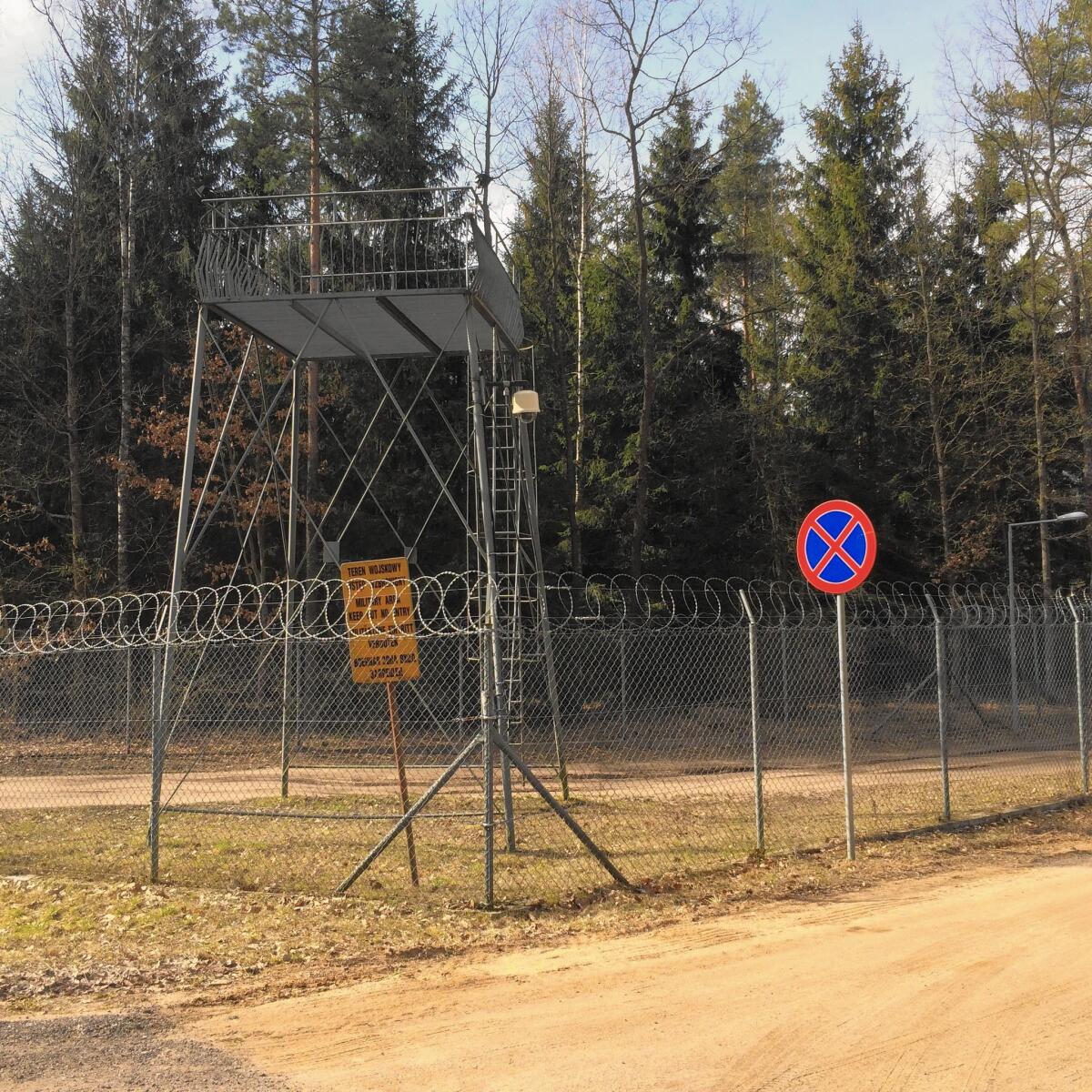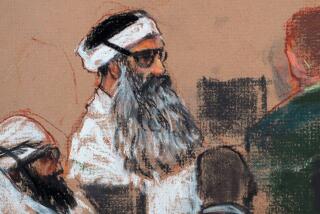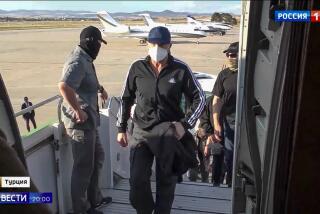Poland feels sting of betrayal over CIA ‘black site’

A remote intelligence training base in Stare Kiejkuty, Poland, was used by the CIA to interrogate terrorism suspects in late 2002 and 2003.
If there were screams, there was no one around to hear them.
When 9/11 mastermind Khalid Shaikh Mohammed and several other terrorism suspects were spirited under cover of winter darkness to this remote northeastern village for interrogation, the few cottages within earshot were empty and the lakes popular with summer tourists were buried in snow.
The dearth of potential witnesses probably drew the CIA agents to Stare Kiejkuty, where a little-used intelligence training base gave them unfettered latitude to conduct so-called enhanced interrogation techniques that would have been illegal in the United States.
But the EITs, to use the spy agency’s shorthand for what many across the world consider torture, were also prohibited under European law. That inconvenient fact, ignored a dozen years ago by both Washington and Warsaw, now confronts Poland with a European Court of Human Rights order to pay compensation to Mohammed and another high-profile victims for having allowed the Americans to conduct the brutal interrogations.
It has also led to charges against Poland’s then-intelligence chief for greenlighting prisoner mistreatment and raised the prospect of such charges and possible prison sentences for the former president and prime minister of Poland who signed off on the CIA “black site,” or secret prison, that operated here for nine months after December 2002.
Revelations contained in a U.S. Senate Intelligence Committee report five months ago provided the final pieces of evidence confirming the complicity of Polish leaders, who had steadfastly denied knowledge of the prison after hints of their complicity were disclosed in a 2006 European Parliament investigation and a Polish inquiry still underway eight years after it was launched.
After release of the American report, Polish jurists and human rights advocates have stepped up their demands that those ultimately responsible for allowing criminal activities on Polish soil, former President Aleksander Kwasniewski and then-Prime Minister Leszek Miller, be held accountable for the excesses that some say have stained their ex-communist nation’s democratic credentials.
After years of denying that a secret CIA prison ever operated in Poland, Kwasniewski and Miller conceded a day after the Dec. 9 release of the Senate report that they had agreed to let the CIA bring captured terrorism suspects to Stare Kiejkuty. They insisted, however, that they knew nothing of any abuse.
Though it makes no specific mention of Poland, the Senate report references evidence provided by Polish sources who witnessed the secretive arrival of prisoners. The accounts began as whispers, escalating to a roaring crescendo after disclosure that the CIA paid Polish officials as much as $50 million in cash to look the other way.
Speculation over rumored CIA activity here began in 2005, sparked by leaks in Washington to U.S. news media about Europe-based CIA secret prisons. The manager at all-but-deserted Szymany airport, 12 miles south of here, told Polish journalists about a bizarre spate of late-night landings in early 2003 by a Gulfstream jet operated by CIA contractors. The journalists examined air traffic logs, confirming that about a dozen flights landing at Szymany had originated in Afghanistan, Thailand and other faraway venues known to have been early CIA interrogation sites.
The aircraft would park at the far end of the runway, where military vehicles licensed to the Stare Kiejkuty base would meet the arriving passengers, then whisk them away after immigration formalities were conducted out of sight of the small terminal, the airport manager, Mariola Przewlocka, told the European Parliament investigators in November 2006.
The inquiry by the Strasbourg-based lawmakers reported “serious circumstantial evidence” that Szymany was the portal for ferrying terrorism suspects to a secret prison for interrogation, suspected to be hidden behind the forests and barbed wire-topped fences surrounding the intelligence base. The Senate report describes a two-story villa where Mohammed, Al Qaeda kingpin Abu Zubaydah and Abd al Rahim al Nashiri, accused of involvement in the bombing of the U.S. destroyer Cole, were brutally interrogated. The description matched those of Poles interviewed by the Europeans. All three terrorism suspects are now detained at the U.S. base in Guantanamo Bay, Cuba.
Przewlocka was called to testify before the European Court of Human Rights, which in July issued the first legal judgment that the U.S. policies of nabbing terrorism suspects abroad and delivering them to third countries for interrogation was a violation of international human rights law. The court ordered Poland to pay $262,000 in compensation to Mohammed and Nashiri, a ruling upheld on appeal in February.
Those in positions of authority when the prison was set up here “did it out of friendship with the United States, which we still feel,” said Radoslaw Sikorski, Poland’s foreign minister for seven years, now marshal of the Sejm, the lower house of the Parliament. “We have been embarrassed by it, but even so we do not apologize for having the closest possible security and intelligence relationship with the United States.”
Sikorski notes that Poland is the only country that has sought to hold accountable its own senior officials whose decisions allowed the CIA to commit human rights violations on its territory. He lays the blame for the persistent controversy on indiscreet U.S. colleagues, who began leaking details of the CIA secret prisons even before Przewlocka’s observations came to journalists’ attention.
“We might have to pay compensation even though our personnel did nothing wrong,” Sikorski said of the detention operation handled by CIA agents and contractors. “You can imagine how Polish people feel about it…. We just wish that intelligence matters were kept confidential.”
Others say the sting of betrayal is still felt among the people and officials alike, and that their affinity for American culture and values has been diminished.
“This left bad feelings on our side. We are a small country that was badly treated by a great power,” said Tadeusz Chabiera, a founder of the Euroatlantic Assn. think tank in Warsaw and one of the brokers of Poland’s membership in the North Atlantic Treaty Organization.
The scandal that has unfolded piecemeal over the last decade has inflicted damage on the U.S.-Polish relationship, he and other analysts say, because of the memories it has evoked of Warsaw’s subservient role during nearly half a century of Soviet domination.
Most Poles weren’t particularly outraged by the abuse disclosures over the years, as Poland has only a minuscule Muslim population and many tend to regard the few in their midst warily, said Adam Bodnar, head of the legal division of the Helsinki Foundation for Human Rights and a law professor at Warsaw University.
“But people felt they had been lied to by our authorities and they were ashamed that they had believed their politicians,” he said, referring to the belated admissions by Miller and Kwasniewski.
The gradual revelations of what went on at Stare Kiejkuty prompted Polish prosecutors in 2008 to open an investigation to determine who knew about the suspected CIA secret prison and how and why Poland’s U.S. allies were allowed to commit what international legal scholars have deemed acts of torture. Among the techniques reportedly used were “waterboarding,” in which the subject’s breathing passages are flooded until vital signs cease, and “rectal packing.”
That Polish inquiry resulted in charges against one person, as yet unidentified by the investigators but widely believed from news reports to be then-intelligence chief Zbigniew Siemiatkowski. He is accused of “unlawfully depriving prisoners of their liberty” by facilitating the rendition of the most notorious CIA captives. The investigation is still underway, although there has been no known recent action to hold Miller and Kwasniewski responsible for their roles, Bodnar said.
There is still little clamor for accountability at the highest levels, Bodnar said. But there is significant public anger, he said, over the apparent corruption involved in the millions of dollars paid to intelligence officials. The payments, alluded to in the investigations, are widely considered to have been bribes to erode the resistance of Polish authorities once they became aware of the nature of the interrogations. The money has never been accounted for.
Even after paying the hush money, the CIA shut down Stare Kiejkuty in September 2003, just nine months after delivering its first interrogation subject, Zubaydah, to the base that, though no longer in use, remains under guard and monitored by motion-activated security cameras.
Neither has the quest ended for full disclosure concerning activities at the secret prison, Bodnar said.
“There will be new calls for testimony before the European Court of Human Rights and a follow-up probe by the Council of Europe,” he said. “As long as Poland refuses to clarify it fully, it will be a problem for our image as a democracy.”
Williams recently was on assignment in Poland.
More to Read
Sign up for Essential California
The most important California stories and recommendations in your inbox every morning.
You may occasionally receive promotional content from the Los Angeles Times.











